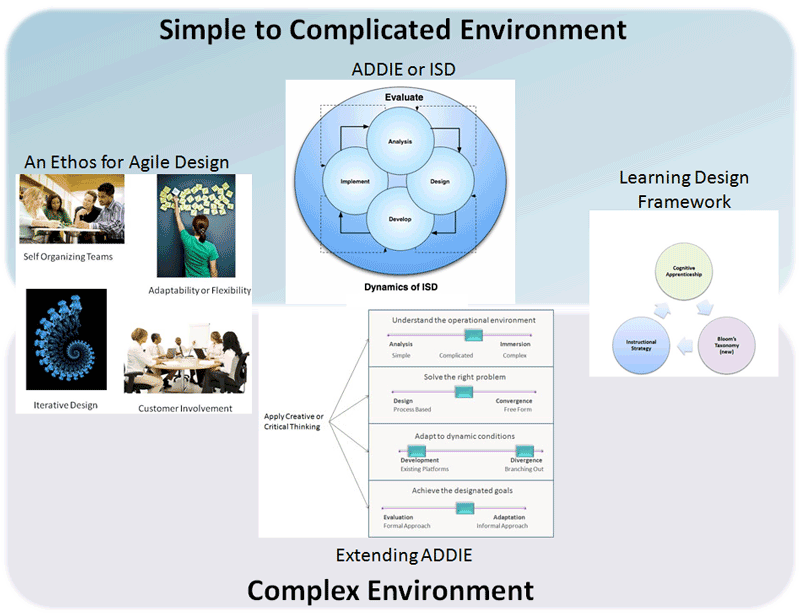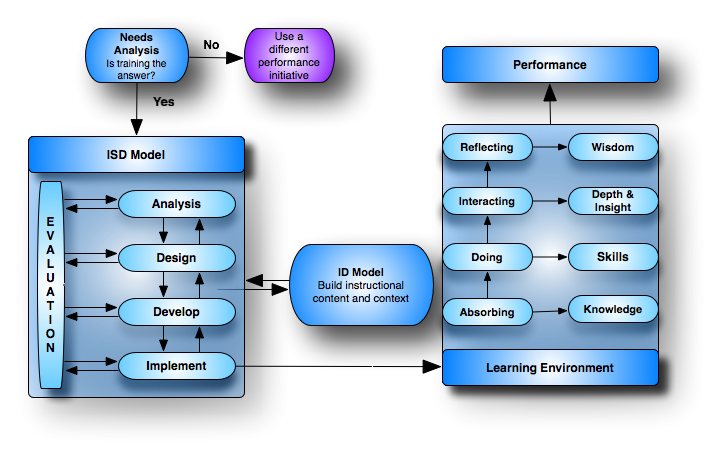Instructional Design — Just-In-Time Learning
Just-in-Time learning (JIT) provides a learning solution when it is actually needed, rather than on a deferred basis. It can be automated, such as web based; or having coaches on stand-by for such needs. It has a couple of main advantages:
- Eliminates the need for refresher training due to the loss of the newly acquired skills and knowledge if they are not put to use when the learners return to their jobs (this is know as decay).
- Allows the learners to receive training when they need it... not weeks or months later.
Although used for a very long time, the modern Job-Performance-Aid traces its modern roots to the JIT method. It began as a printed card that contained step-by-step instructions for performing a specific task. The worker did not have to memorize the steps. Job aids include anything that when added to the work situation improves job performance by guiding, facilitating, or reminding the performers in their accomplishment of job tasks. This method of providing an alternative to improving job performance opened the door to other interventions to changing job performance. Job or performance aids are considered instructional interventions because they also mediate knowledge and skills problems. However, performance aids are not really intended to produce learning, as they are a substitute for learning. Learning that does occur as a result of using the job aid (surely considerable at times) is incidental.



